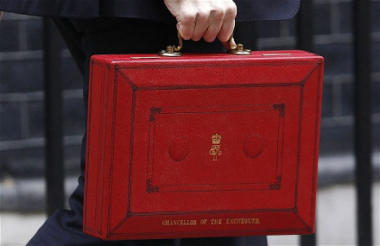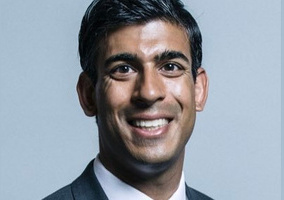Charity leaders are calling for an emergency support package to address funding gaps created by the pandemic, ahead of the government’s Budget statement in March.
As part of the #NeverMoreNeeded campaign, the Charity Finance Group (CFG) has joined with other sector organisations (full list below) to call for this emergency package of support. It has also made another submission with Charity Tax Group (CTG), to seek improvements to the tax system.
Rishi Sunak, chancellor of the exchequer, is being urged to develop a package of financial support to plug the financial losses incurred by Covid-19.
The sector is facing an estimated £10bn loss for the year from the start of the crisis, due to the ongoing impact of the Covid-19 pandemic and lockdown restrictions.
The government had announced a £750m package of support in March 2020. Although broadly welcomed, many charity leaders have said this is not enough to ensure they can continue to deliver essential services.
In the submission sector leaders say: "Our sector is essential both to the immediate response to Covid-19 and to the medium and longer-term ambition to level up and build back better. Our nation needs our charities and social change organisations to play their part and your Budget must enable them to do so to."
Five Point Plan
As well as calling for an emergency support package, leaders are also reiterating the sector’s Five Point Plan.
This plan sets out specific measures as to how the government can support civil society in the medium and longer-term. It asks the government to do the following:
- Support for Local Voluntary Organisations
- Introduce the Gift Aid Emergency Relief Package
- Repurpose and access stranded funds to support charity services (The National Fund, Community Wealth Fund and repaying lottery distributors from the 2012 London Olympics)
- Ensure effective and efficient distribution of the Shared Prosperity Fund
- Strengthen long-term financial sustainability of local authorities by increasing core government funding
Tax reform
The CTG and CFG tax submission highlighted five core tax policy issues facing charities:
- Structural distortions caused by the VAT system resulting in significant irrecoverable VAT for charities.
- Protect charity business rates relief in England following the recent “Fundamental Review”.
- Ensure Gift Aid is fit for the digital age, including, where relevant allowing minor changes to legislation.
- Adopt a flexible subsidy control system post-Brexit to ensure that that charities with large property portfolios do not miss out on essential business grants, designed to help mitigate the impacts of lockdown.
- Consider a temporary increase in the value of Gift Aid to help charities recover from Covid-19.
‘The Chancellor will need to invest in both physical and social infrastructure’
Anoushka Kenley, research and policy director at Pro Bono Economics, said: “With economic uncertainty rife and demands for more support wherever he turns, the chancellor is facing some unenviable decisions at the next Budget. On the one hand, he will be under pressure to find new short-term fixes for the ongoing Covid emergency.
“On the other hand, he’ll need to layout the first steps of his plan to deal with the long-term scarring the pandemic has left behind. The chancellor will need to invest in both physical and social infrastructure to tackle the inequalities Covid has exacerbated, alongside the growing mental health crisis, or charities will find demand for their services continuing to rise unsustainably.”
Levelling Up
Leah Davis, head of policy at NPC, said: “This is inevitably a crisis budget, but I suspect the chancellor will want to look forward and remind the country of his party’s levelling up agenda. Charities and funders should be watching out for more details on the Levelling Up Fund and Shared Prosperity Fund. If these funds are genuinely to level up the UK it is vital that charities and social organisations can play a role.
“We need to hear more from government about how they will work, as well as commitments to listen and adapt where necessary to the needs of the sector. The danger is the process excludes charities, especially smaller ones, and has the knock on of excluding the people they represent, levelling up for some but not others.”
#NeverMoreNeeded signatories
The signatories include:
- Debra Allcock Tyler, chief executive, Directory Social Change
- Tony Armstrong, chief executive, Locality
- Dr Charlotte Augst, chief executive, National Voices
- James Banks, chief executive, London Funders
- Caron Bradshaw OBE, chief executive, Charity Finance Group
- Vicky Browning OBE, chief executive, Association of Chief Executives of Voluntary Organisations
- Kathy Evans, chief executive, Children England
- Ali Harris, chief executive, Equally Ours
- Vivienne Hayes MBE, chief executive, Women’s Resource Centre
- Neil Heslop, chief executive, Charities Aid Foundation
- Rhidian Hughes, chief executive, VODG
- Michelle Janes Joint, chief executive, Jewish Leadership Council
- Peter Lewis, chief executive, Chartered Institute of Fundraising
- Carol Mack OBE, chief executive, Association of Charitable Foundations
- Ed Mayo, chief executive, Pilotlight
- Clare Mills, head of communications and external affairs, NAVCA
- Rosalind Oakley, chief executive, Association of Chairs
- Ndidi Okezie, chief executive, UK Youth
- Kunle Olulode MBE, director, Voice4Change England
- Dr Matt Plen, chief executive,Masorti Judaism
- Paul Reddish, chief executive,Volunteering Matters
- Angela Salt OBE, chief executive,Girlguiding
- Paul Streets OBE, chief executive, Lloyds Bank Foundation for England & Wales
- Sarah Vibert, director of Membership and Engagement, NCVO
- Adeela Warley, chief executive,Charity Comms
- Donal Watkin, chief executive, Association of Charitable Organisations
- James Watson-O’Neill, chief executive, Sign Health
Related articles











